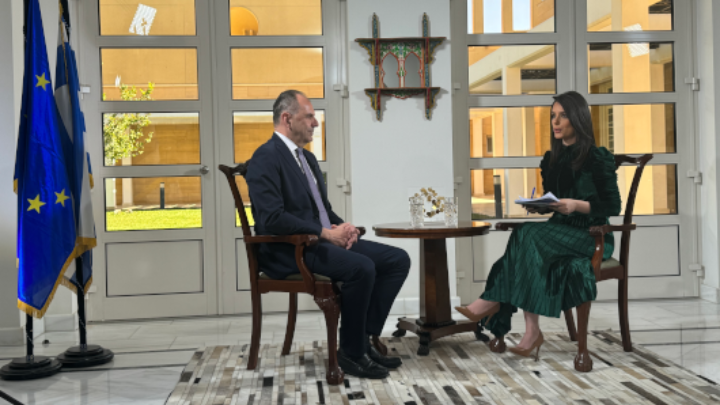Greek Foreign Affairs Minister George Gerapetritis expressed his concern about the situation in the Middle East, in an interview with Al Arabiya published on Saturday.
“I think there are two basic issues that we need to address immediately and I think (US State) Secretary Blinken completely shares this view,” he said, focusing on further increasing humanitarian aid with sustainable corridors to Gaza, and the possibility of the conflict’s having a spill-over effect in the region. “As you know, there are two further problems in the region. The one comes from the northern part of Israel and the involvement of Hezbollah and the other from the Houthis in the Red Sea. So it is a significant concern that we need to contain the hostilities now in the broader region in order to find a sustainable and long lasting solution,” he noted.
He said that a coalition of governments and leaders in the European Union promote the idea of a sustainable solution. Specifically, Gerapetritis noted, “We clearly support the resolutions of the UN Security Council about the two-state solution within the boundaries prior to 1967. I think this should be the starting point for any discussion for the post war era.” Despite disagreements within the EU, all agreed there is a need for humanitarian aid and an end to this war,” he noted.
Asked to comment on the current war in Gaza and the Palestinian-Israeli conflict in general, the Greek FM replied that “from the very beginning, Greece’s stance was categorically against the aggression, against any hostility, against any form of terrorism. We clearly distinguished between Hamas, the terrorist organisation, and the Palestinian people, who we clearly respect and with whom we have strong historical ties. And on the other hand, what we said is that we need to minimize the consequences of the war against civilians and we have to establish sustainable humanitarian corridors.”
For Greece, he said, it is unacceptable that people are held hostages. “We demand just like the rest of the international community, the immediate release of hostages. We do consider that there is an International Law-based right of self-defense, but within the limits of International Law and International Humanitarian Law.”







